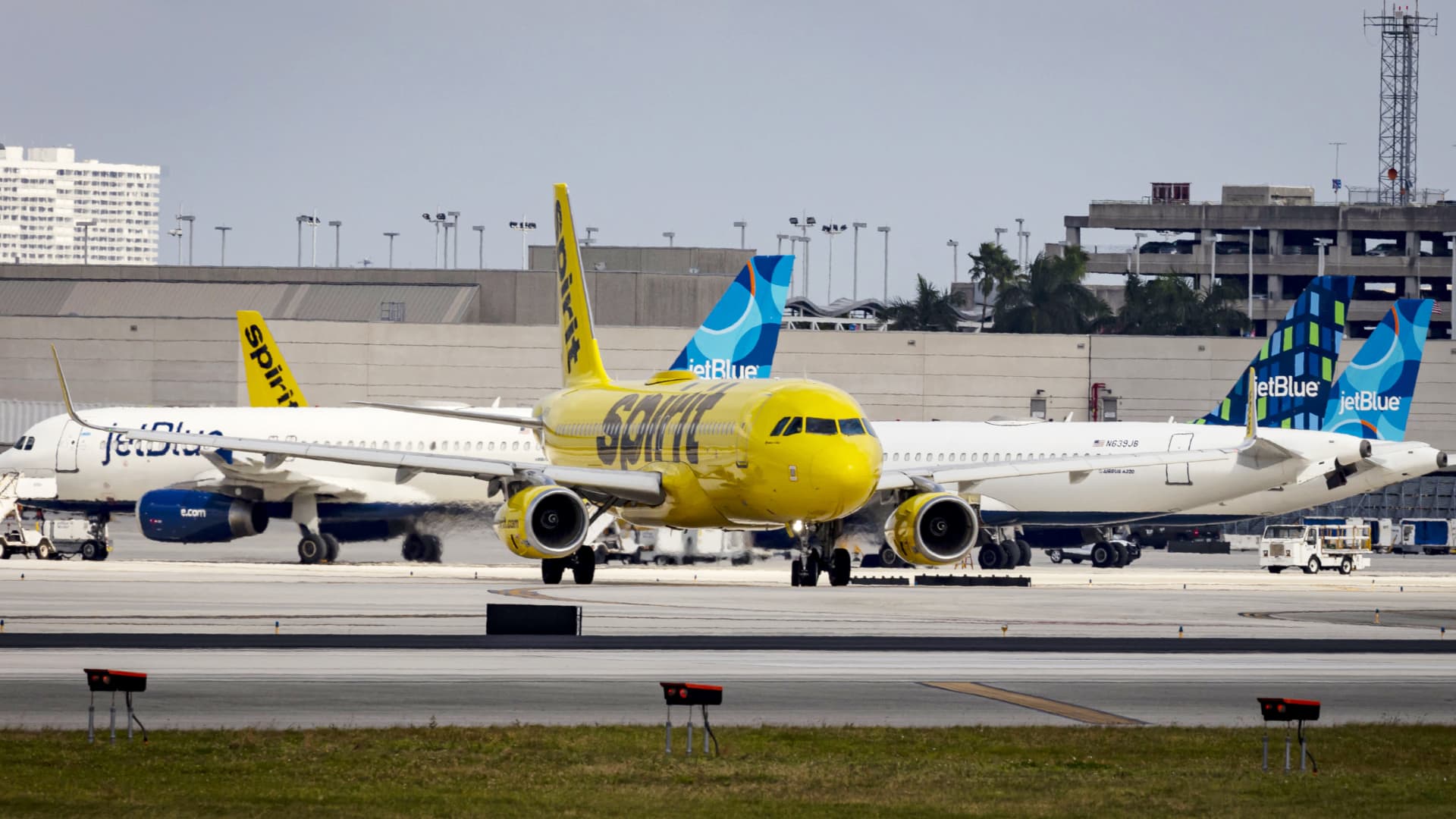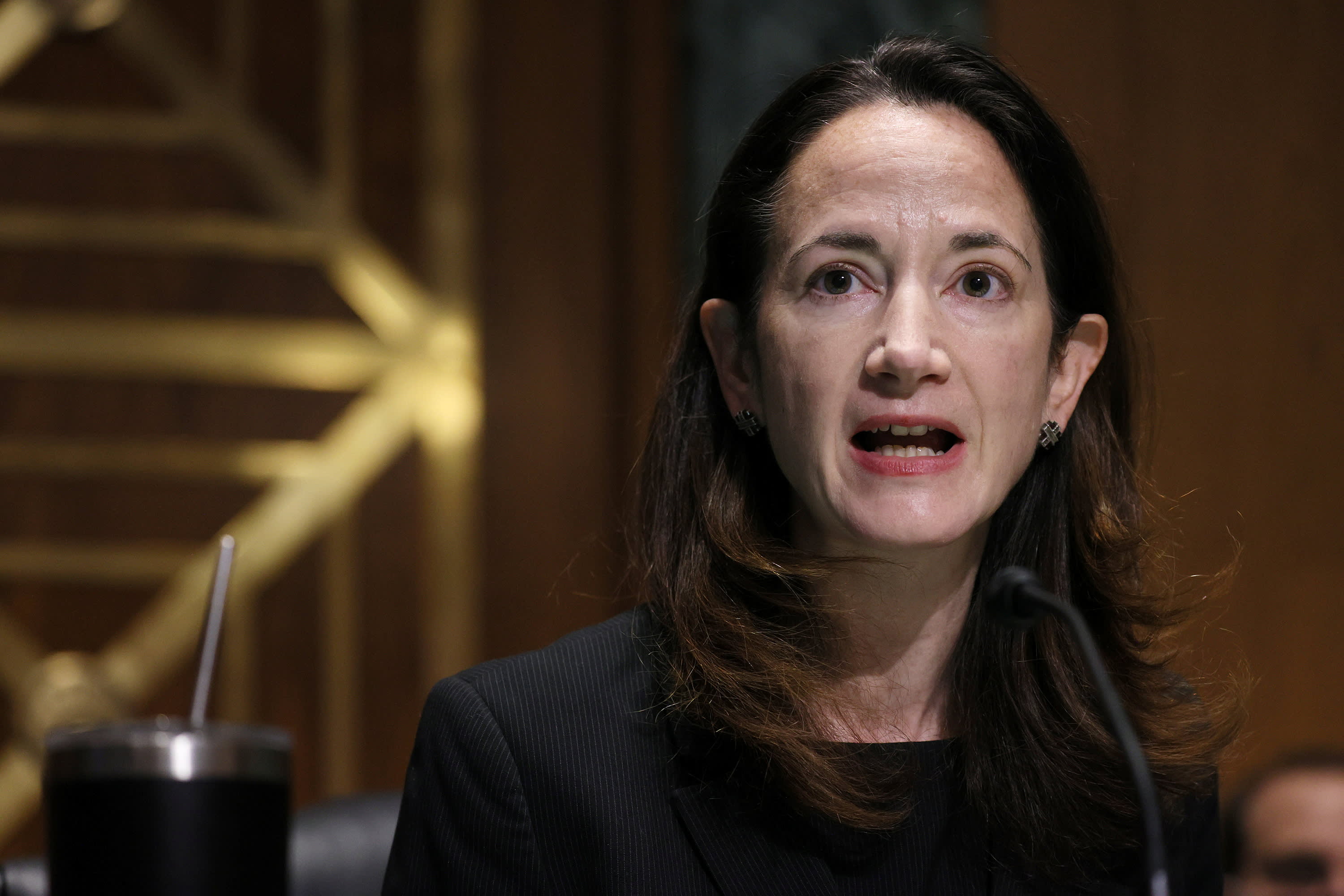JetBlue and Spirit appeal judge's ruling that blocks their proposed merger
A judge earlier this week sided with the Justice Department and blocked JetBlue's planned purchase of Spirit.

Spirit and JetBlue planes at Fort Lauderdale-Hollywood International Airport in Fort Lauderdale, Florida, on Nov. 1, 2023.
Eva Marie Uzcategui | Bloomberg | Getty Images
JetBlue Airways and Spirit Airlines on Friday said they are appealing a federal judge's ruling earlier this week that blocks the two carriers' planned merger on antitrust grounds.
JetBlue had planned to buy Spirit for $3.8 billion in a deal struck in 2022. A federal judge on Tuesday, however, barred that combination, saying it would eliminate the budget carrier and mean higher prices for cost-conscious consumers.
Spirit shares extended gains posted during the regular session on Friday, rising more than 10% in after-hours trading, while JetBlue's were down slightly.
JetBlue said it was appealing the decision "consistent with the requirements of the merger agreement."
Judge William Young noted in his ruling that JetBlue planned to take seats out of Spirit's tightly packed planes, and said that removing Spirit from the market would leave price-conscious consumers without that option.
"To those dedicated customers of Spirit, this one's for you," he wrote.
Miramar, Florida-based Spirit had been struggling before the ruling with softening travel demand, higher costs and planes grounded for a Pratt & Whitney engine issue. But the judge's decision drew questions from Wall Street analysts about how Spirit would survive, sending shares tumbling.
Spirit said Friday that it is trying to refinance its more than $1 billion of debt due in September 2025 and issued a sunnier-than-expected financial forecast, helping shares recover.
The U.S. Department of Justice will soon weigh in on another proposed merger: Alaska and Hawaiian. Analysts said those carriers' deal doesn't have the same challenges because they have less route overlap and plan to operate as separate brands.
Don't miss these stories from CNBC PRO:

 Tfoso
Tfoso 































